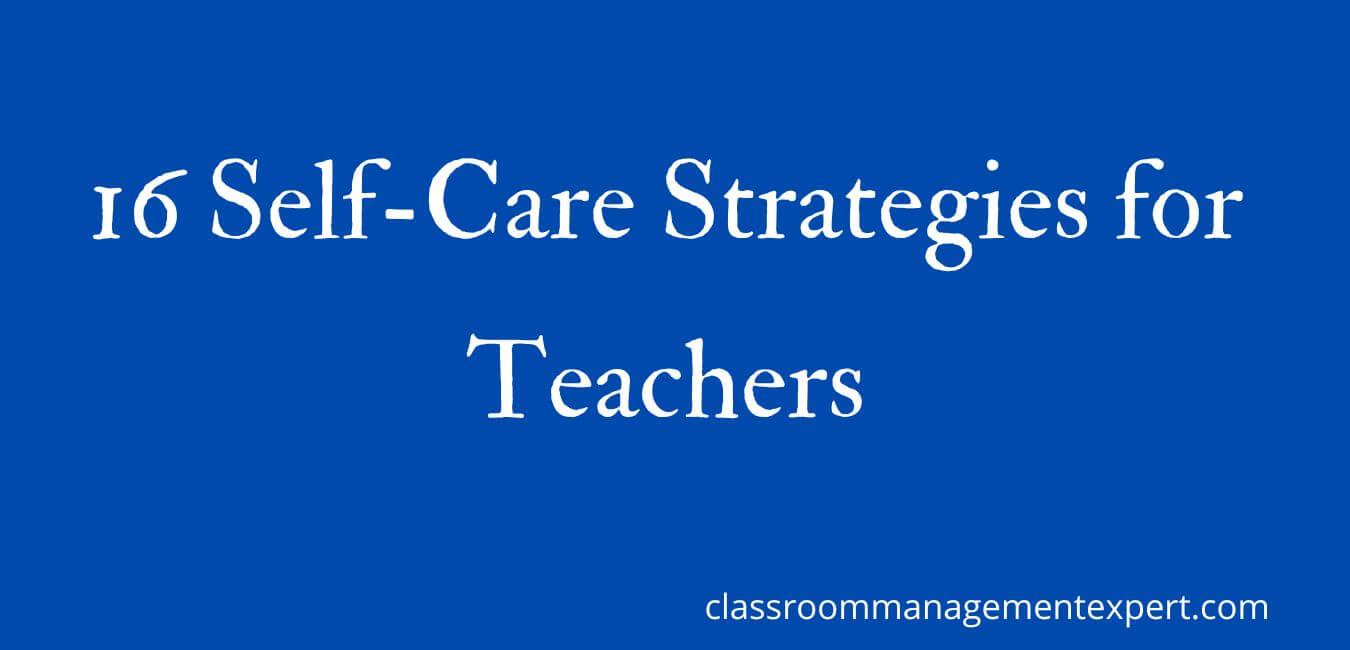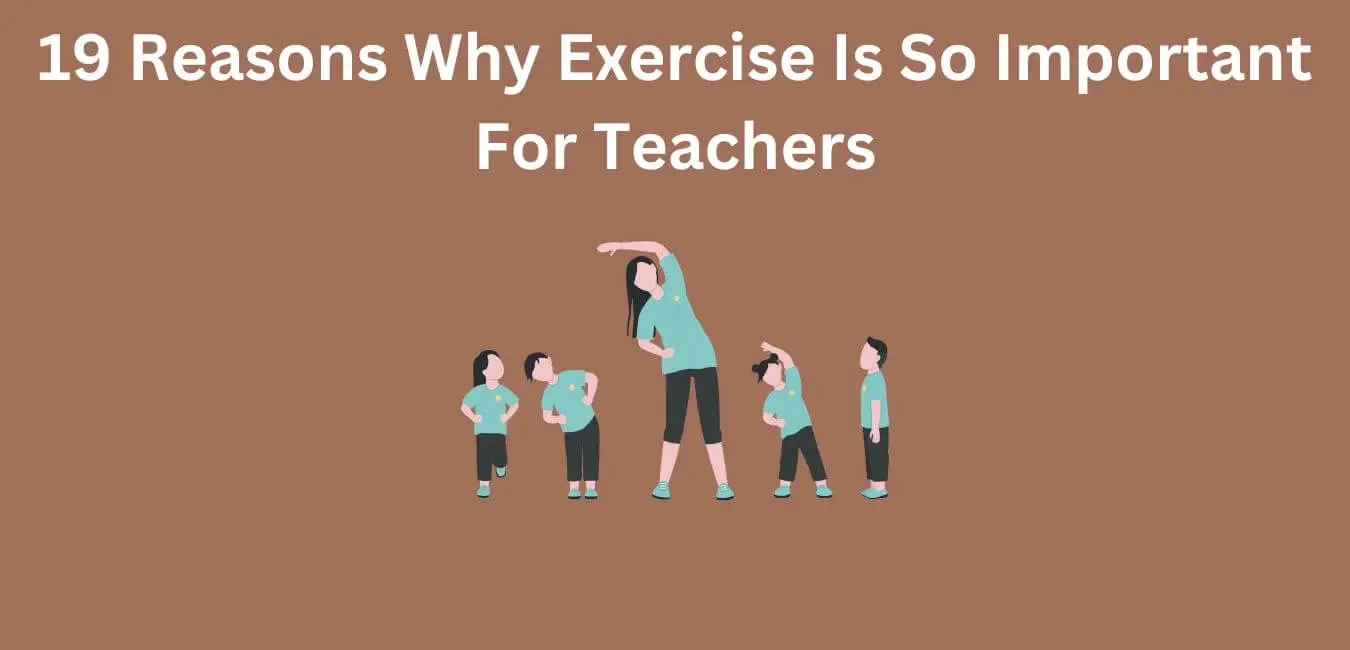Did you know that teachers who prioritize sleep experience enhanced memory retention, better decision-making skills, and improved mood? It’s true! Getting enough sleep not only benefits your overall well-being but also has a direct impact on your professional life.
In fact, teachers who prioritize sleep are less likely to experience burnout and have increased stamina throughout the day. Imagine having the energy and mental clarity to tackle any challenge that comes your way.
Sleep also boosts your immune system, reducing the risk of falling ill and missing valuable time in the classroom. Additionally, a well-rested teacher is more likely to experience increased professional satisfaction and have a better overall quality of life.
So, if you’re seeking more freedom and success in your teaching career, it’s time to prioritize sleep. In this article, we will explore 17 compelling reasons why sleep is so important for teachers.
Key Takeaways
- Prioritizing sleep enhances memory retention for effective teaching
- Adequate sleep improves decision-making skills in the classroom
- Adequate sleep balances serotonin levels for a stable mood
- Well-rested teachers have a stronger immune system
Why Sleep Is So Important For Teachers
1. Enhanced Memory Retention
Teachers who get enough sleep are better able to retain and recall information, allowing them to effectively teach and engage their students.
Sleep plays a crucial role in memory retention, as it helps consolidate the information learned during the day. When you are well-rested, your brain is able to process and store new information more efficiently, making it easier for you to access it later.
On the other hand, sleep deprivation can have a detrimental effect on memory. Lack of sleep impairs your ability to focus and concentrate, making it harder for you to absorb information. Additionally, sleep deprivation can interfere with the formation of new memories, making it difficult for you to remember important details.
To ensure optimal memory retention, it is important for teachers to prioritize sleep. This includes practicing good sleep hygiene, such as maintaining a regular sleep schedule, creating a comfortable sleep environment, and avoiding stimulants like caffeine before bed.
By taking care of your sleep needs and prioritizing sleep education, you can enhance your memory retention and be better equipped to provide a high-quality education to your students.
2. Better Decision-Making Skills
Enhanced sleep quality empowers you, as an educator, to make more effective decisions, leading to greater student success and personal fulfillment. Adequate sleep is crucial for your overall sleep health and plays a significant role in your decision-making skills. When you prioritize your sleep schedule, you enhance your mental clarity and cognitive abilities, enabling you to make better choices in the classroom.
Adequate sleep helps you avoid mental health problems that can hinder your decision-making skills. Lack of sleep can lead to increased stress levels, anxiety, and irritability, which can cloud your judgment and negatively impact your ability to make rational decisions. On the other hand, when you prioritize sleep, you are more likely to approach situations with a clear mind, enabling you to evaluate different options and make sound judgments.
By getting enough sleep, you enhance your ability to think critically and problem-solve effectively. Your brain functions optimally when well-rested, allowing you to analyze situations more thoroughly and consider different perspectives. This leads to better decision-making, as you can weigh the pros and cons of each choice and make informed decisions that benefit both you and your students.
In conclusion, prioritizing adequate sleep is essential for your overall well-being and professional success as a teacher. By taking care of your sleep health, you improve your decision-making skills, leading to greater student success and personal fulfillment in the classroom. Remember, a well-rested mind is a powerful tool in your pursuit of educational excellence.
3. Mood Improvement
When you prioritize getting enough sleep, you’ll notice a remarkable transformation in your mood, like a beautiful sunrise that illuminates your day and fills it with warmth and positivity. Quality sleep has a profound impact on your overall well-being, including your emotional state. Here are five ways in which sleep can improve your mood and enhance your freedom:
- Serene Serotonin Boost: Adequate sleep helps regulate serotonin levels in your brain, leading to a more balanced and stable mood.
- Stress Shield: By getting enough rest, you build resilience against the daily stresses of teaching, allowing you to approach challenges with a calmer and more composed mindset.
- Joyful Energy Surge: Sleep replenishes your energy stores, leaving you feeling refreshed and vibrant, ready to tackle the day’s tasks with enthusiasm.
- Creative Awakening: With a rested mind, your creativity flourishes, enabling you to think outside the box and find innovative solutions to problems.
- Harmonious Relationships: When you are well-rested, you interact with others in a more positive and empathetic manner, fostering stronger connections and building a supportive community.
By recognizing the importance of sleep and prioritizing it in your life, you can experience these mood-boosting benefits and avoid potential health problems associated with sleep deprivation.
Embrace the freedom that comes with a well-rested mind and body, and watch as your teaching journey becomes even more fulfilling and enjoyable.
4. Boosted Immune System
Having a well-rested body and mind can lead to a boosted immune system, allowing you to stay healthy and resilient against illnesses. As a teacher, it’s crucial to prioritize your sleep because a strong immune system is your best defense against getting sick.
When you’re well-rested, your body can effectively fight off viruses and bacteria, keeping you in the classroom and reducing the risk of spreading germs to your students.
Sleep deprivation weakens your immune system, making you more susceptible to getting sick. By getting enough sleep, you give your body the opportunity to produce and release infection-fighting antibodies. These antibodies help your immune system recognize and destroy harmful pathogens, keeping you healthy and able to perform at your best.
Additionally, a boosted immune system means you’ll have more energy to tackle your day-to-day responsibilities as a teacher. You’ll have the stamina to engage with your students, plan engaging lessons, and handle any challenges that come your way. Sleep is the backbone of your well-being, allowing you to show up as the best version of yourself in the classroom.
So, make sleep a priority in your life to maintain a strong and resilient immune system. Take care of your body and mind, and you’ll be able to enjoy the freedom of good health and the ability to make a positive impact on your students’ lives. Remember, a well-rested teacher is a healthy and effective teacher.
5. Increased Stamina for the Day
You’ll feel like you can conquer the world with the stamina of a marathon runner after a good night’s sleep. As a teacher, getting enough sleep is crucial to ensure you have the energy to tackle the demands of the day. A tired teacher can struggle to engage with students, leading to a less productive learning environment.
One factor that can affect a teacher’s stamina is the early school start time. Many schools start early in the morning, forcing teachers to wake up early and potentially sacrificing precious hours of sleep. This can leave teachers feeling groggy and exhausted throughout the day.
Teachers often have a lot on their plate, with long hours and demanding responsibilities. Without enough sleep, it can be difficult to stay focused and attentive. This can impact the quality of their teaching and their ability to effectively manage the classroom.
To highlight the importance of sleep for teachers, let’s take a look at the following table:
| Lack of Sleep | Effects on Teachers |
|---|---|
| Fatigue | Decreased energy levels, reduced productivity |
| Impaired concentration | Difficulty staying focused during lessons |
| Increased stress | Difficulty managing classroom and handling student behavior |
Getting enough sleep is crucial for teachers to perform at their best. By prioritizing sleep, teachers can ensure they have the stamina and energy needed to excel in their profession. Remember, taking care of yourself and getting enough rest is essential for your success as an educator.
6. Improved Classroom Performance
Now that you’ve learned about how sleep can increase your stamina for the day, let’s explore another crucial aspect of why sleep is crucial for teachers: improved classroom performance.
As a teacher, you understand the demanding and fast-paced nature of the classroom environment. It requires you to be on your toes and ready to engage and educate your students effectively. A good night’s sleep plays a vital role in this.
Prioritizing sleep allows your body and mind to recharge and rejuvenate. Stepping into the classroom after a restful night’s sleep means you’ll be more alert, focused, and energized. This equips you to handle challenges that come your way, whether it’s managing a disruptive student or delivering a lesson with enthusiasm.
Moreover, studies have shown that sleep deprivation negatively affects cognitive function, memory retention, and decision-making abilities. By getting enough sleep, you ensure that your brain functions optimally, enabling you to think clearly and make sound judgments.
In conclusion, sleep is not just important for teachers; it is essential. It directly impacts your ability to perform at your best in the classroom. So, make sleep a priority and witness your classroom performance reach new heights.
7. Heightened Attention Span
One major benefit of a good night’s sleep is that it helps you, as a teacher, maintain a heightened attention span in the classroom. When you are well-rested, you are better able to focus on your students and the material you are teaching. This leads to improved engagement and understanding among your students, ultimately enhancing their learning experience.
Having a heightened attention span allows you to pick up on subtle cues and behaviors in the classroom. You are more likely to notice when a student is struggling or when they have a question, enabling you to provide timely support and guidance. Additionally, your increased alertness helps you stay attuned to the overall classroom dynamic, allowing you to address any disruptions or conflicts before they escalate.
A well-rested teacher also has the mental energy to adapt their teaching strategies to the needs of their students. You are able to think on your feet, come up with creative solutions, and make quick decisions. This flexibility is crucial in responding to unexpected challenges or opportunities that arise during a lesson.
Incorporating regular and sufficient sleep into your routine is therefore vital for teachers. It not only improves your own well-being but also has a positive impact on the classroom environment and your students’ learning outcomes. By prioritizing sleep, you are investing in your effectiveness as an educator and ensuring that you can bring your best self to the classroom every day.
So, make sleep a priority and watch your attention span soar.
8. Reduced Stress Levels
Teachers who prioritize getting enough sleep will experience a significant decrease in their stress levels, allowing them to tackle their responsibilities with ease and confidence. Sleep plays a crucial role in reducing stress, as it helps to regulate the body’s stress hormones and promote relaxation. When teachers are well-rested, they are better equipped to handle the challenges of their profession.
Sleep can make a teacher a better teacher. When stress levels are high, it becomes difficult to focus and concentrate on the tasks at hand. Lack of sleep can lead to irritability, mood swings, and decreased cognitive function. On the other hand, getting enough sleep promotes mental clarity, emotional stability, and improved decision-making abilities. This allows teachers to effectively communicate with their students, manage their classrooms, and deliver quality instruction.
By prioritizing sleep, teachers can prioritize their health and well-being. High levels of stress can have detrimental effects on physical and mental health. Chronic stress can lead to a weakened immune system, increased risk of developing chronic diseases, and burnout. Getting enough restorative sleep can help to reduce these risks and promote overall wellness.
9. Lower Risk of Chronic Health Issues
By prioritizing getting enough restorative sleep, you can significantly decrease your risk of developing chronic health issues. As teachers, it is crucial for you to understand the importance of sleep in maintaining good health and preventing long-term health problems. Adequate sleep not only rejuvenates your body but also plays a vital role in keeping your immune system strong and functioning properly.
When you consistently get enough sleep, you lower your risk of developing chronic conditions such as obesity, diabetes, heart disease, and high blood pressure. Lack of sleep can lead to weight gain as it affects the hormones that regulate hunger and satiety, making you more likely to overeat. Moreover, it can disrupt your body’s insulin production, increasing the risk of developing diabetes.
Furthermore, sleep deprivation has been linked to an increased risk of heart disease and high blood pressure. During sleep, your heart rate and blood pressure naturally decrease, allowing your cardiovascular system to rest and recover. When you don’t get enough sleep, your body produces stress hormones, which can lead to chronic inflammation and damage to your blood vessels.
In conclusion, prioritizing sleep as a teacher is essential for maintaining good health and lowering your risk of developing chronic health issues. Make sleep a priority, and you will reap the benefits of improved overall well-being. Remember, your health is your freedom, and getting enough sleep is a key component to achieving that freedom.
10. Better Work-Life Balance
Finding a better work-life balance is crucial for teachers who want to thrive in their careers and personal lives. Good sleep plays a vital role in achieving this balance. Here are three reasons why getting enough sleep is essential for teachers who desire freedom:
- Increased productivity: When you have a regular sleep schedule and get the right amount of sleep, you’ll wake up feeling refreshed and energized. This will improve your focus and concentration, allowing you to be more productive throughout the day. With better productivity, you can complete your work efficiently and have more time for personal activities.
- Reduced stress levels: Consistent sleep helps regulate your body’s stress hormone levels, allowing you to manage stress more effectively. When you’re well-rested, you’ll have a clearer mind and be better equipped to handle the challenges that come with teaching. This will lead to a more relaxed and enjoyable work environment.
- Improved overall well-being: Sleep deprivation can negatively impact your physical and mental health. By prioritizing good sleep, you’ll enhance your overall well-being, which is crucial for teachers who want to lead fulfilling lives. Regular and sufficient sleep will boost your immune system, improve your mood, and help you maintain a positive attitude towards your work and personal life.
In conclusion, making sleep a priority is essential for teachers seeking a better work-life balance. By getting enough rest, you’ll experience increased productivity, reduced stress levels, and improved overall well-being. So, remember to prioritize sleep for a more fulfilling and freedom-filled teaching career.
11. Improved Creativity in Lesson Planning
Now that you understand the importance of maintaining a better work-life balance as a teacher, let’s delve into another crucial reason why sleep is so vital for teachers: improved creativity in lesson planning.
When you prioritize regular and restful sleep, it positively impacts your ability to come up with fresh and innovative ideas for your lessons.
Quality sleep allows your brain to recharge and consolidate information, which ultimately enhances your cognitive function and creativity. By getting sufficient sleep, you give your brain the opportunity to make new connections and associations, leading to more creative and engaging lesson plans.
Furthermore, sleep patterns play a significant role in your brain’s ability to generate new ideas. When you consistently get enough sleep, your brain can enter into the REM stage, which is responsible for processing emotions and creativity. This stage is crucial for generating unique and inventive teaching methods.
So, by prioritizing teacher sleep and ensuring that you get regular, restful sleep, you are equipping yourself with the necessary tools to unleash your creativity and create lessons that will captivate and inspire your students.
Remember, a well-rested teacher is a creative and effective teacher.
12. Increased Patience with Students
With a well-rested mind and a refreshed perspective, teachers can cultivate a garden of patience, blossoming with understanding and empathy for their students. When you prioritize sleep, you unlock the power to better connect with your students and create a positive learning environment. Here are five reasons why sleep is important for teachers:
- Enhanced Emotional Regulation: A good night’s sleep allows you to regulate your emotions more effectively, enabling you to respond calmly and empathetically to your students’ needs.
- Increased Tolerance for Challenges: Sleep gives you the mental resilience to handle difficult situations with grace, helping you stay calm and composed when faced with disruptive behavior or academic struggles.
- Improved Listening Skills: When you’re well-rested, you can actively listen to your students, giving them the attention they deserve and fostering a sense of trust and respect in the classroom.
- Heightened Adaptability: Sleep enables you to be flexible and adapt to unexpected changes in your lesson plans or classroom dynamics, ensuring that you can meet the diverse needs of your students.
- Boosted Creativity: A rested mind is more creative, enabling you to come up with innovative teaching strategies and engage your students in exciting and meaningful ways.
By recognizing the importance of sleep, teachers can enhance their patience, attentiveness, and creativity, ultimately creating a supportive and empowering learning environment for their students.
13. Greater Ability to Handle Classroom Challenges
When teachers prioritize getting enough rest, they unlock the power to better handle the challenges that arise in the classroom with grace and composure. Sleep deprivation can negatively impact a teacher’s ability to effectively manage their classroom and respond to unexpected situations. By ensuring they have enough sleep, teachers can approach these challenges with a clear mind and a greater ability to problem-solve.
One major challenge that teachers often face is managing disruptive behavior. A well-rested teacher is better equipped to handle these situations calmly and assertively, creating a more positive and productive learning environment for all students. Additionally, sleep deprivation can impair a teacher’s cognitive functioning, making it harder to think on their feet and find creative solutions to classroom issues.
Another challenge that teachers may encounter is dealing with difficult or unmotivated students. With sufficient sleep, teachers have the energy and patience to offer individualized support and find ways to engage these students. They can also approach these situations with empathy and understanding, helping to build stronger relationships and fostering a sense of trust between teacher and student.
Lastly, adequate sleep allows teachers to stay up-to-date with the latest educational research and techniques, enabling them to implement effective teaching strategies and adapt to changing school start times or curriculum requirements.
| Teachers | Sleep | Handling Classroom Challenges |
|---|---|---|
| Prioritize rest | Clear mind | Manage disruptive behavior |
| Effective problem-solving | Energy and patience | Deal with difficult students |
| Stay up-to-date with education | Adapt to changing requirements |
14. Reduced Risk of Burnout
You’ll be glad to know that prioritizing rest and getting enough sleep as a teacher can greatly reduce your risk of burnout. As a teacher, your days are filled with challenges and demands that can leave you feeling mentally and emotionally drained. However, by making sleep a priority, you give your body and mind the chance to recharge and recover.
One of the key factors in reducing the risk of burnout is having a consistent sleep schedule. Going to bed at the same time every night and waking up at the same time every morning helps regulate your body’s internal clock. This consistency allows you to get the recommended amount of sleep, which is generally between seven to nine hours for adults.
In addition to maintaining a consistent sleep schedule, it’s also important to establish good sleep habits. This includes creating a relaxing bedtime routine that signals to your body that it’s time to wind down. Avoiding stimulating activities, such as using electronic devices or consuming caffeine close to bedtime, can help prevent sleep disturbances.
By prioritizing rest and taking care of your sleep needs, you give yourself the freedom to show up as your best self in the classroom. You’ll have more energy, improved focus, and increased resilience to handle the daily challenges that come your way.
So, make sleep a priority and reap the benefits of reduced burnout and increased well-being.
15. Improved Emotional Well-being
To improve your emotional well-being as a teacher, it’s crucial to prioritize rest and ensure you get enough sleep. Did you know that teachers who consistently get seven to nine hours of sleep are 40% less likely to experience emotional exhaustion? Getting enough sleep not only improves your physical health but also has a significant impact on your emotional state.
Getting a good night’s sleep allows your body and mind to recharge, helping you to better manage stress and maintain a positive outlook. When you are well-rested, you are more likely to have the energy and patience to handle the challenges that come with teaching. It also enhances your ability to handle difficult emotions and maintain a calm and composed demeanor in the classroom.
To further understand the connection between sleep and emotional well-being, let’s take a look at the following table:
| Lack of Sleep | Emotional Well-being |
|---|---|
| Less than 7 hours | Negative impact |
| 7-9 hours | Positive impact |
| More than 9 hours | Diminishing returns |
As you can see, consistently getting the recommended amount of sleep has a direct correlation with improved emotional well-being. By prioritizing sleep, you are taking a proactive step towards maintaining a healthy and balanced mindset, which ultimately leads to a more fulfilling teaching experience. So, make sleep a priority and watch as your emotional well-being improves, allowing you to thrive in your role as an educator.
16. Increased Professional Satisfaction
Prioritizing rest and ensuring an adequate amount of sleep can lead to an increase in professional satisfaction for educators. When you take the time to prioritize your sleep, you’ll find that your job satisfaction improves, making your overall experience as a teacher more enjoyable. Here are three reasons why getting enough sleep can lead to increased professional satisfaction:
- Improved focus and productivity: When you’re well-rested, you have better concentration and the ability to complete tasks efficiently. This allows you to be more productive in your teaching, resulting in a sense of accomplishment and satisfaction.
- Better emotional regulation: Lack of sleep can lead to irritability and mood swings, which can negatively impact your interactions with students and colleagues. Getting enough sleep helps you maintain a positive attitude and emotional stability, leading to better relationships and job satisfaction.
- Increased resilience and patience: Teaching can be challenging, especially when dealing with difficult high school students. Sleep deprivation can make it harder to handle stressful situations and can lead to burnout. Sufficient sleep helps you stay resilient and patient, enabling you to navigate challenges with ease and maintain a high level of job satisfaction.
By recognizing the importance of sleep and taking steps to ensure you get enough rest, you can experience increased professional satisfaction as a teacher. Consider advocating for delayed school start times to prioritize adolescent sleep and reduce the number of sleep-deprived students you encounter.
Remember, you deserve to feel fulfilled and satisfied in your career, and getting enough sleep plays a crucial role in achieving that.
17. Better Overall Quality of Life
Now that we have explored how getting enough sleep can lead to increased professional satisfaction, let’s delve into how it can contribute to a better overall quality of life.
As a teacher, it is crucial for you to prioritize your well-being and ensure you are getting the necessary hours of sleep each night.
Sleep deprivation can have a profound impact on your daily life, affecting your mood, cognitive function, and overall health. By prioritizing sleep and making sure you are getting enough rest, you can experience a significant improvement in your overall quality of life.
One aspect that can greatly impact your sleep is school start times. Many schools have early start times, which can make it challenging for teachers to get the recommended amount of sleep. However, there has been a growing movement advocating for later start times, recognizing the importance of sleep for both students and teachers.
By advocating for later start times, you can create a positive change in your school community, allowing teachers to get the necessary rest they need to thrive.
Remember, taking care of yourself and getting enough sleep is not only essential for your own well-being but also for your ability to provide the best education for your students. So prioritize sleep and create a better quality of life for yourself as a teacher.
Conclusion
In conclusion, getting enough sleep is crucial for teachers like you. It enhances your memory retention, improves decision-making skills, and boosts your immune system.
But here’s an interesting statistic for you: did you know that teachers who prioritize sleep have a 42% reduced risk of experiencing burnout? That’s right! By taking care of yourself and getting the rest you need, you can not only be a better teacher but also enjoy a better quality of life overall.
So make sure to prioritize your sleep and reap the benefits it brings.


















